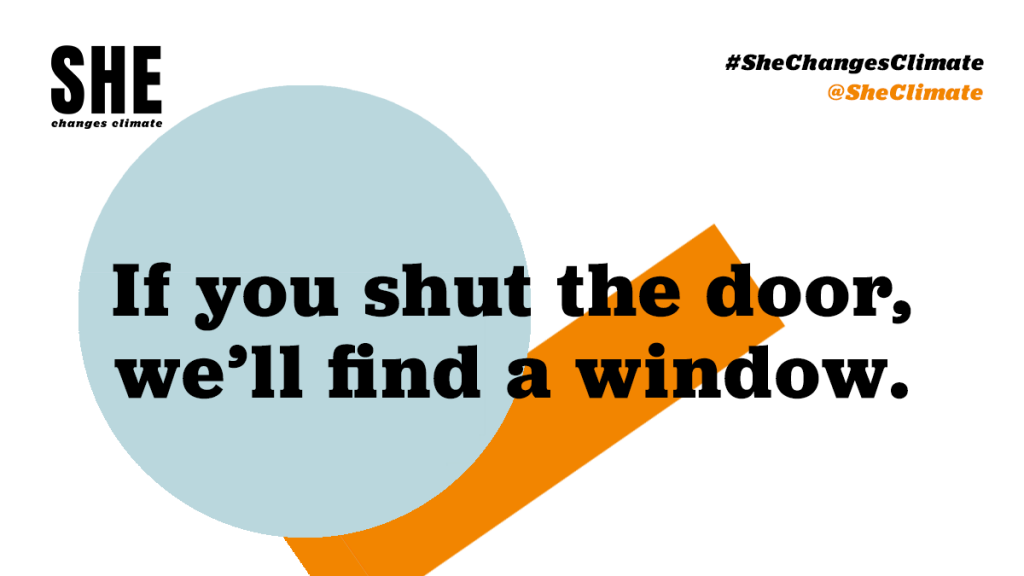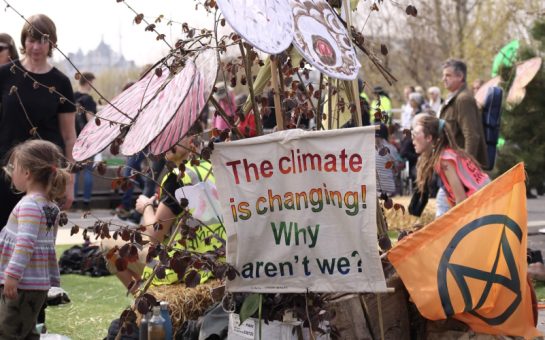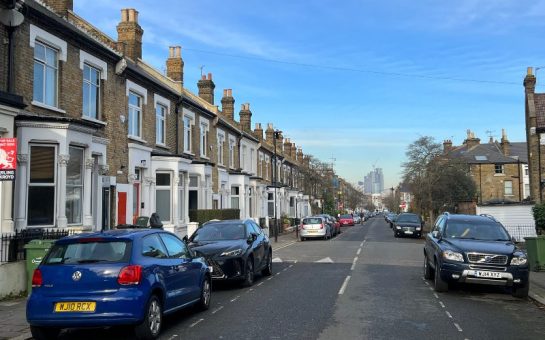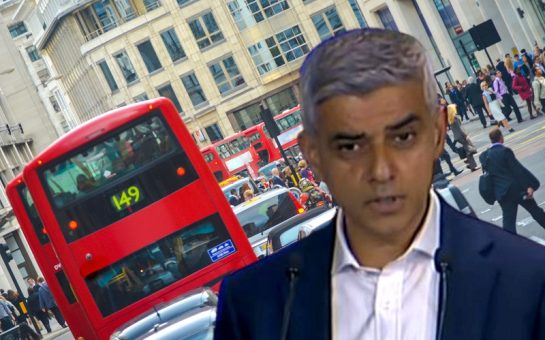In September, Fiona Harvey wrote an article about the COP26 leadership team for The Guardian that sparked an international climate movement.
The article outed the all-male leadership team poised to lead the next UN climate summit, COP26, taking place in Glasgow.
In its wake, three environmental leaders decided to join forces and fight for gender parity at COP26.
Antoinette Vermilye, Bianca Pitt and Elise Buckle formed SHEChangesClimate, an organisation with the single focus of obtaining a 50-50 split of men and women leading COP26.
Marine conservationist Vermilye said: “My ultimate goal is to see more women, in all their diversity, at the top.
“We’ve got to work much faster to make this world a more equal place, and it starts with defending women.”
In December, SHEChangesClimate sent an open letter to the UK Government calling for greater accountability and transparency on COP26’s leadership team.
It was signed by over 400 female environmental activists and leaders including Caroline Lucas MP, Cherie Blair CBE, Dame Emma Thompson, and Ellie Goulding.
Now Anne-Marie Trevelyan has joined Alok Sharma, Mark Carney and Nigel Topping in the COP26 leadership team.
This means three of the top 12 positions are now filled by women.
A UK Government spokesperson said: “The UK is committed to championing diversity and inclusivity throughout our COP26 presidency, and our vast network of leaders, diplomatic representatives and expert voices reflect this.
“In line with the Gender Action Plan agreed at COP25, the UK recognises that the full, meaningful and equal participation and leadership of women in climate policy is vital for achieving long-term climate goals.”
While there has been progress, for SHEChangesClimate it’s not enough yet.
“The UK Government say ‘we are balanced’,” said Vermilye. “But I say, that’s great but scroll down through the team on the website, it starts with all men and then it goes down to women. It’s not good enough.”
Vermilye saw Harvey’s article when it was posted in a professional WhatsApp group.
She does not usually work directly in climate activism but said she was gobsmacked at the news and felt compelled to act.
“I thought hang on a second, this is as upstream as it gets: the framing and narrative of the COP26 agenda.
“The results of COP26 will affect the work that I’m doing, that the IUCN (International Union for Conservation of Nature), the WWF, and so many groups are doing.
“Those are the frameworks for the next five or so years, so we need to make sure that what comes out of that is the best it can be.
“The question was, can it be when only half of the planet is represented?
“That was the seed that made me think: We have got to fix this.”

The #SHEChangesClimate digital campaign was created by digital agency If Not Now
Women and children are 14 times more likely than men to suffer direct impacts of natural disasters and climate breakdown, according to Friends of the Earth climate campaigner Muna Suleiman.
In her piece for The Guardian, Harvey wrote: “Women in developing countries are among those worst and most immediately hit by climate breakdown, as they have fewer resources and fewer formal rights.
“A report this year by the IUCN found the climate crisis was fuelling violence against women around the world.”
Women and girls more often face the brunt of climate related disasters than men. They are the ‘shock absorbers’ of climate change
SHEChangesClimate open letter to the UK government, December 2020
The UN’s 2020 Gender, Climate and Security report warns: “A gender-blind approach to addressing climate-related security risks can exacerbate the vulnerabilities of groups most exposed to the impacts of climate change, deepening existing inequalities and potentially aggravating environmental and security threats.”
It reported that less than a quarter of the UN member states surveyed mention climate change in their National Action Plans on Women, Peace & Security:
For economist Miatta Fahnbulleh there is a distinct correlation between leadership diversity and the diversity of issues reflected in policymaking.
Fahnbulleh has worked in public policy for many years and is chief executive of the New Economics Foundation, a Think-and-Do Tank with a core mission of environmental justice.
She said: “The thing that has struck me after looking after this for many years is that the way we think about economic policy is really male-dominated.
“I think the things that get prioritised are a function of gender imbalance. A classic example is the lack of economic value put on childcare.
“I believe that if we didn’t have quite such a male-dominated way of looking at economic policy then this would change.
“The way we come to policy is by thinking about a set of issues, thinking of priorities, and then trying to come up with some ways in which to respond.
“If you don’t have people giving a different perspective, those issues just won’t be prioritised on the table.
“Which means the things that you come to at the end – it’s not that they’re wrong – but they are skewed towards a particular perspective.
“And it matters a lot when the other perspective represents 50% of the global population.”
The letter is the tip of the iceberg of SHEChangesClimate’s work. Before going public the team spoke with ambassadors and members of the COP26 team including President Sharma and CEO Peter Hill.
“There was a lot of diplomacy with ambassadors around the world, trying to get them to see what they could do,” said Vermilye.
“Virtually everyone admitted that this was terrible. We are one-fifth of the way through the 21st Century and we’re still dealing with this? I’m just gobsmacked.”
The letter called for increased transparency with the leadership team. Vermilye said that the COP26 website was initially unclear and did not list the full team.
In December Ros Eales and Caroline Holtum were appointed, joining the five men in the COP unit which sits just below the directors.
“Everything I’ve heard about the whole team is that they are all really good. What we’re trying to say is that we want more women there,” said Vermilye.
“Doesn’t the UK, stepping out from Brexit for the first time on the world stage, with a mandate that is the most important in planetary history – don’t they want to be the star that shines?
“Internally the feedback that we’ve got is that there is a change in atmosphere within the COP unit, there is an open space for women which is great news.
“We have a number of asks which I have reiterated and we will keep drumming those until we see change that we are satisfied with.
“I want the UK COP26 team to succeed, because if they have the best input, they get the best output and we all benefit.”
For more information on the campaign see shechangesclimate.org.




Join the discussion
Wonderful news.